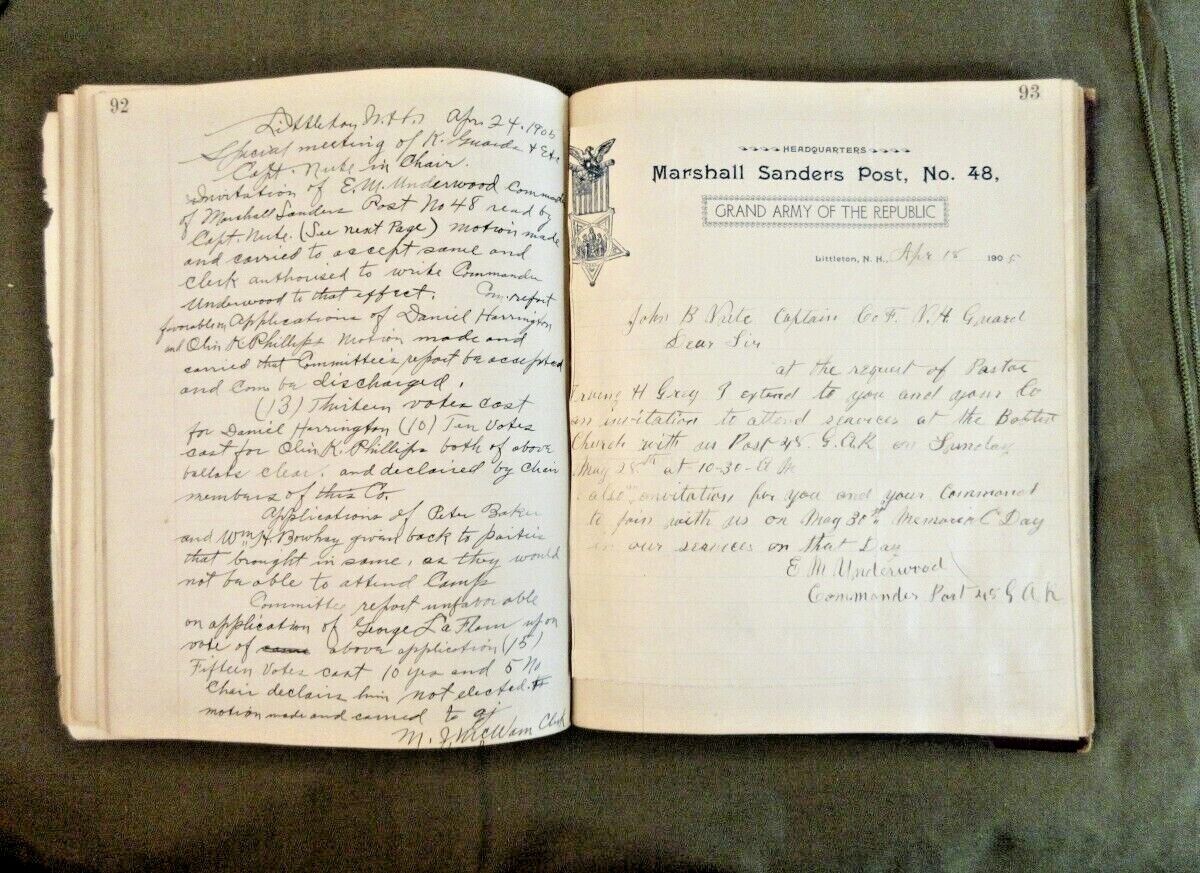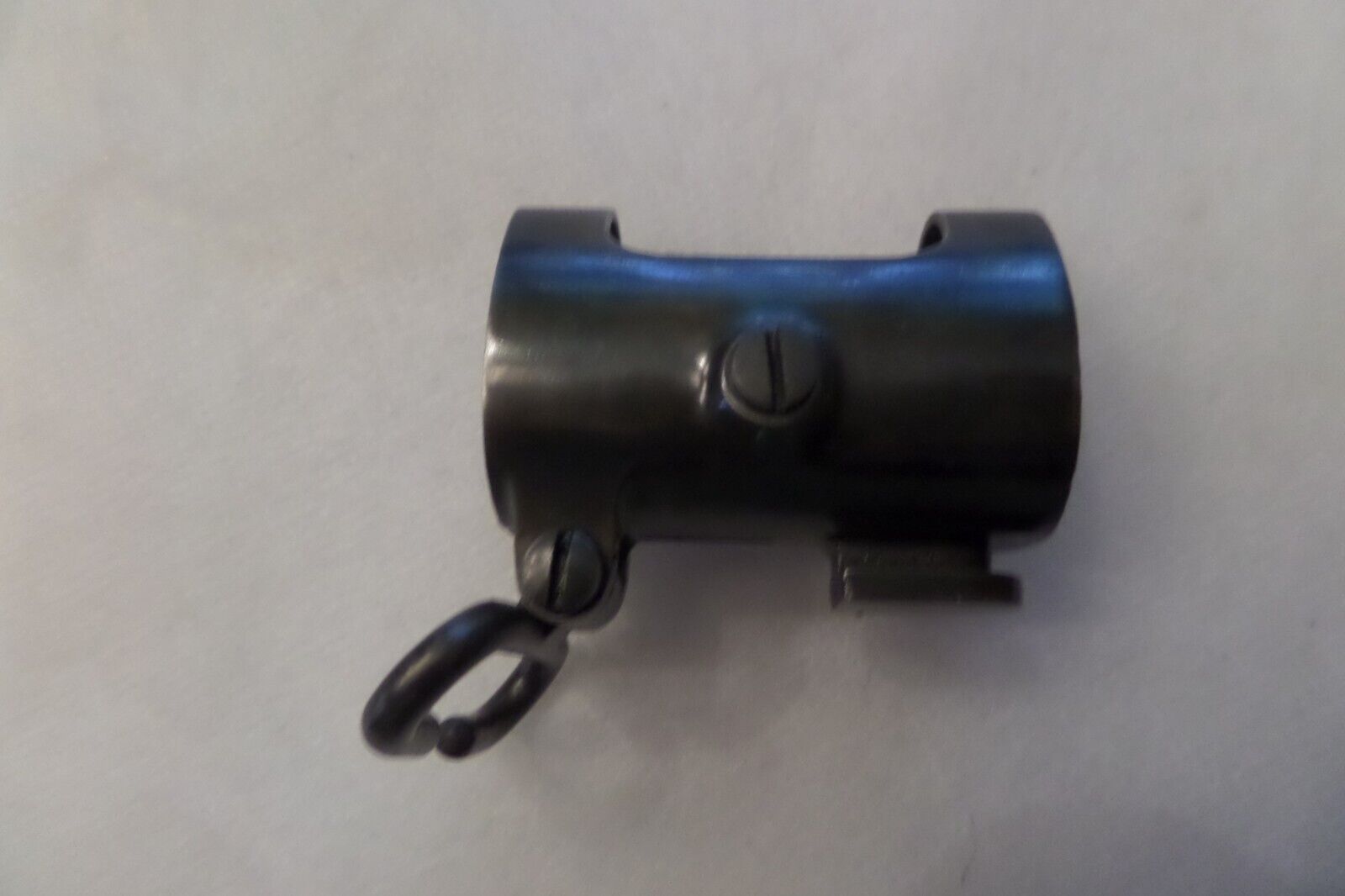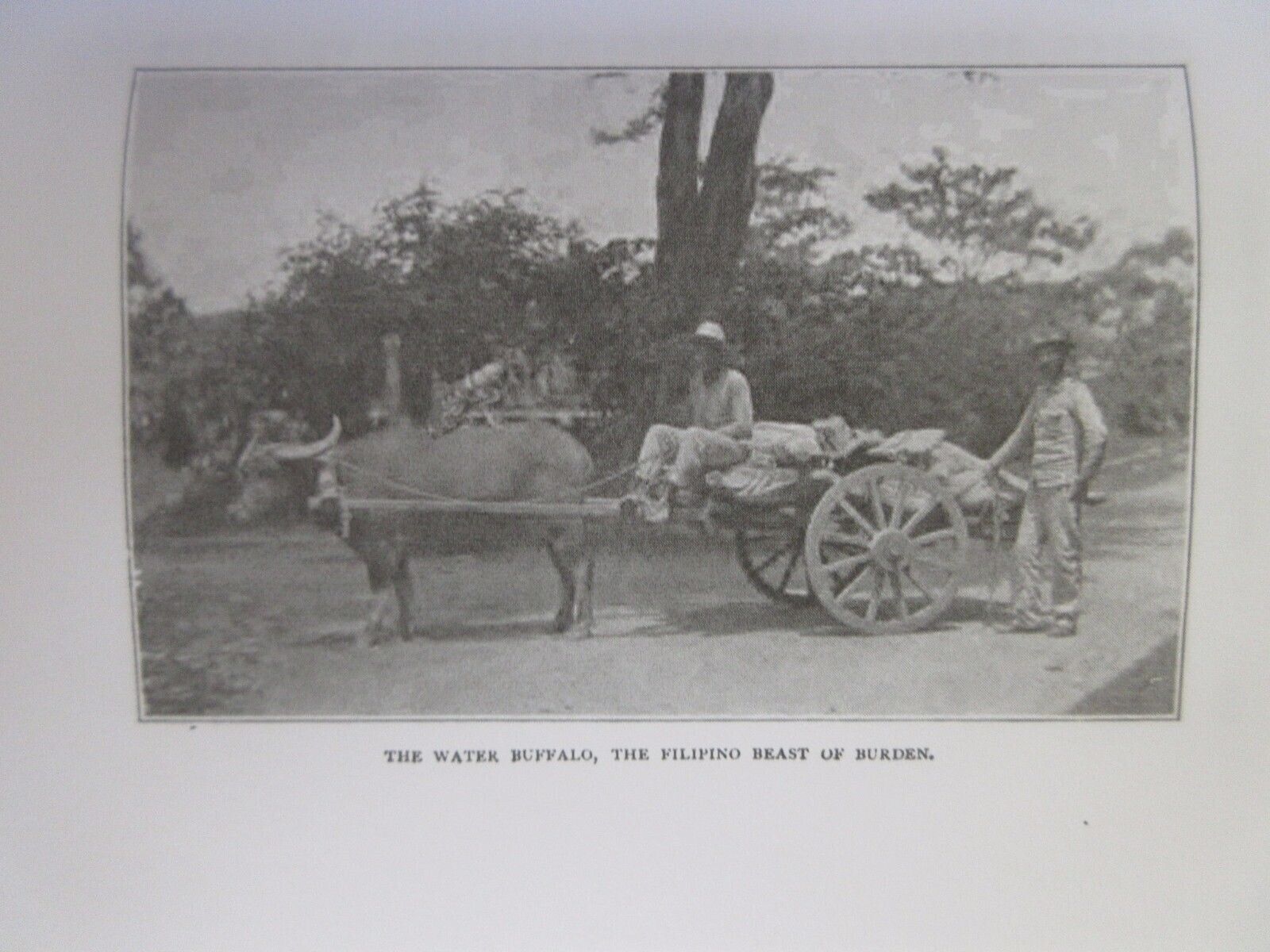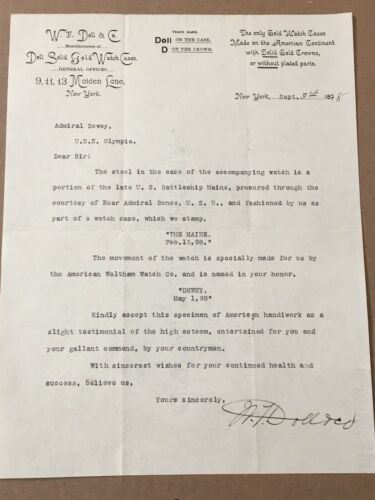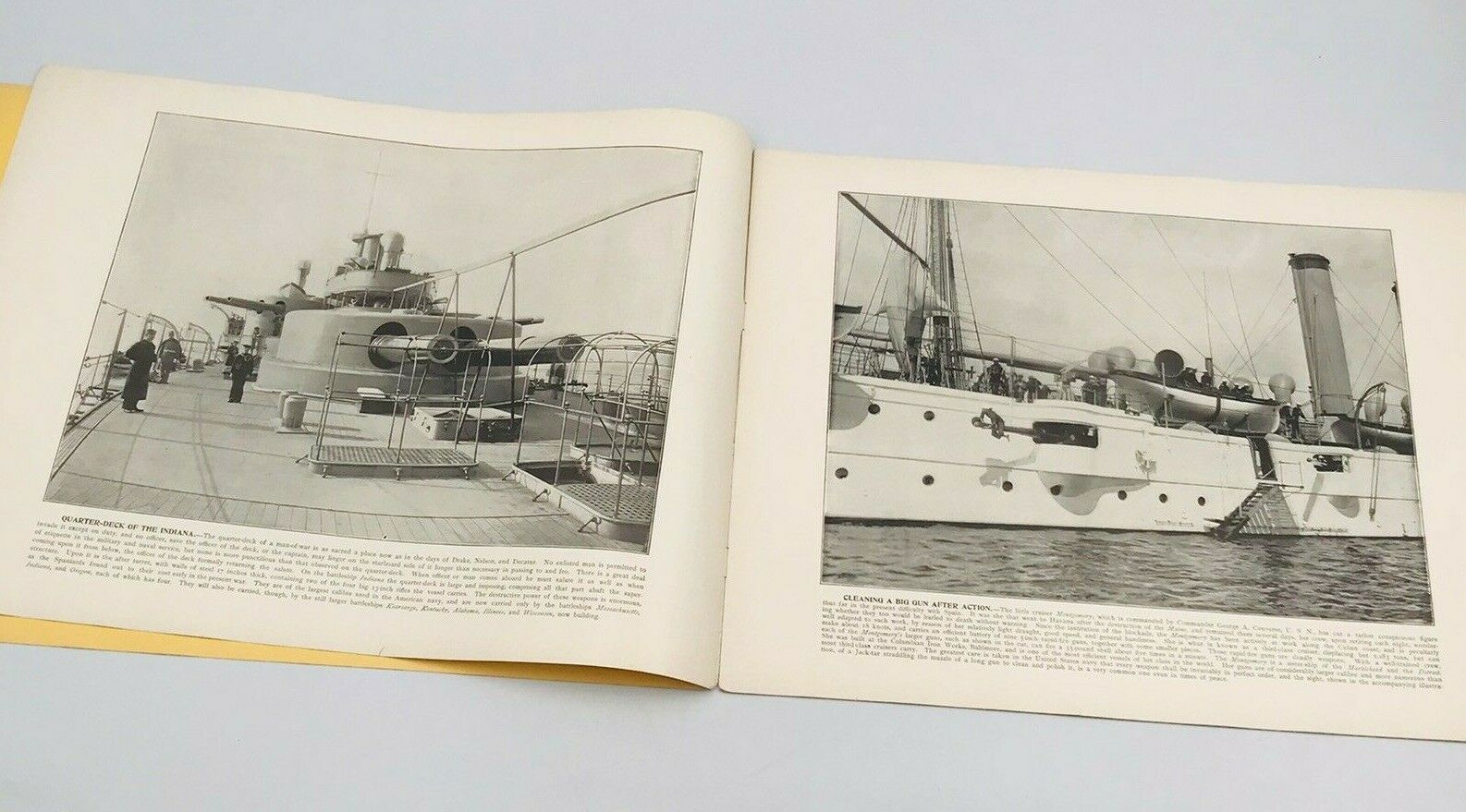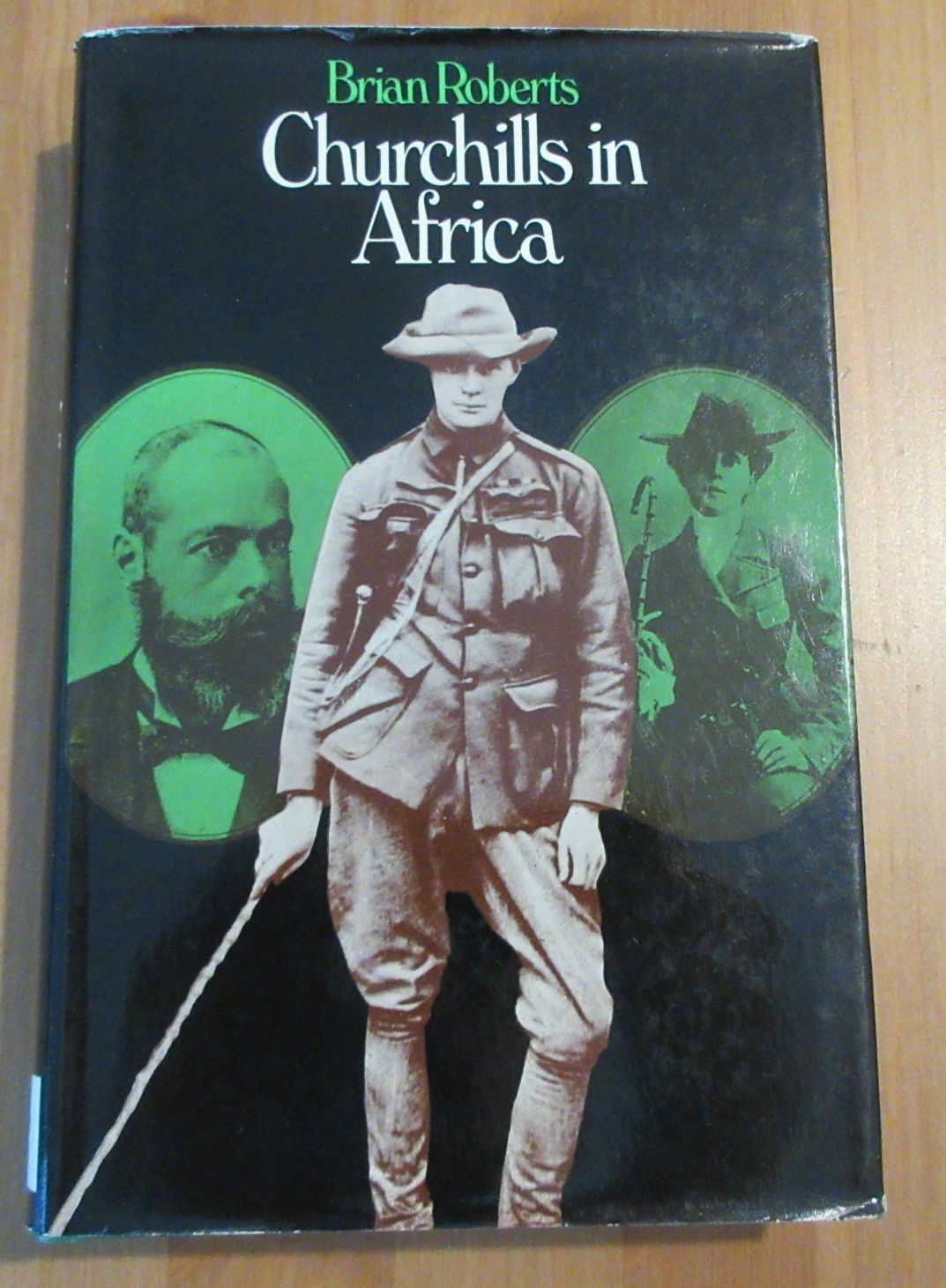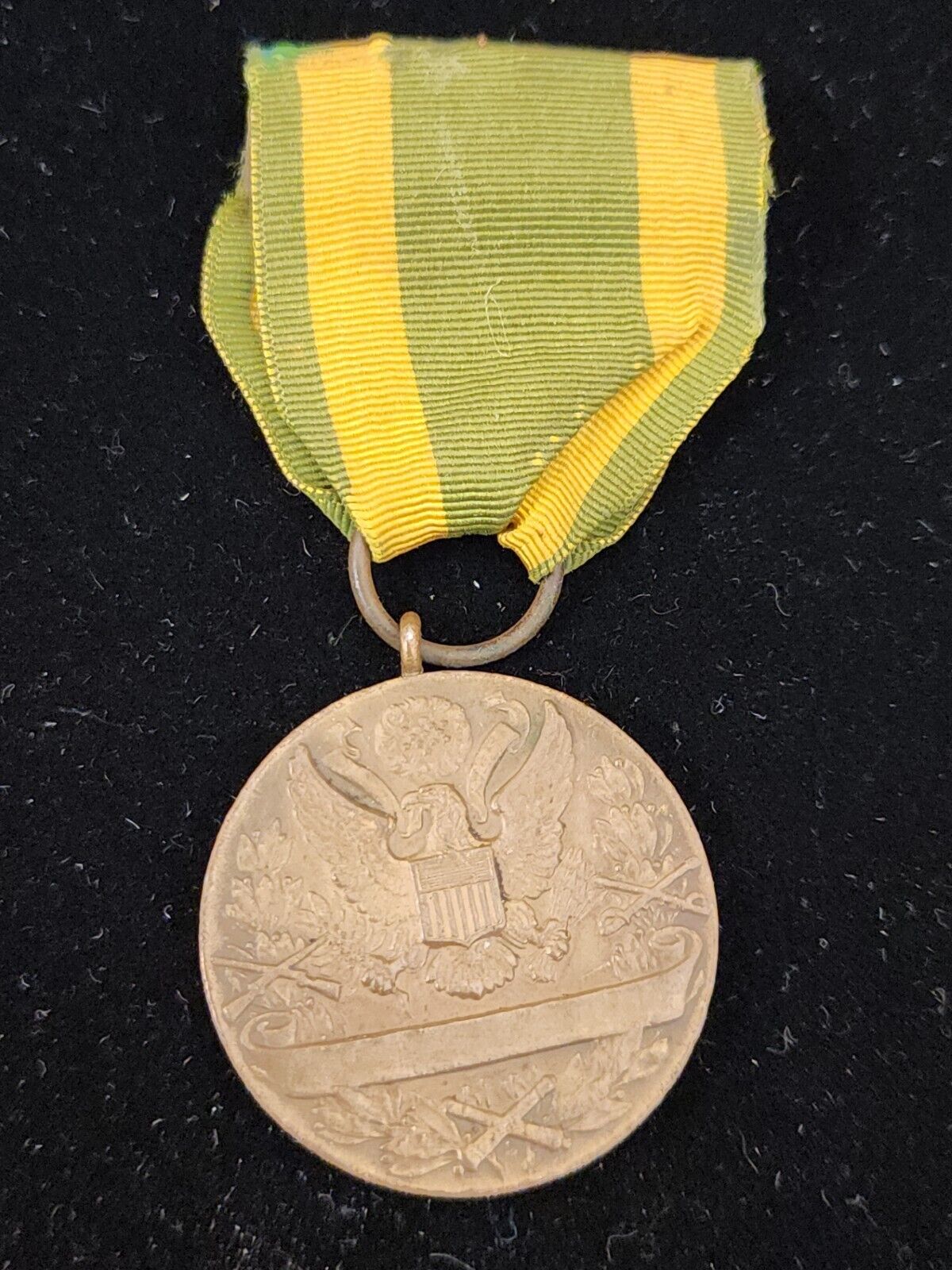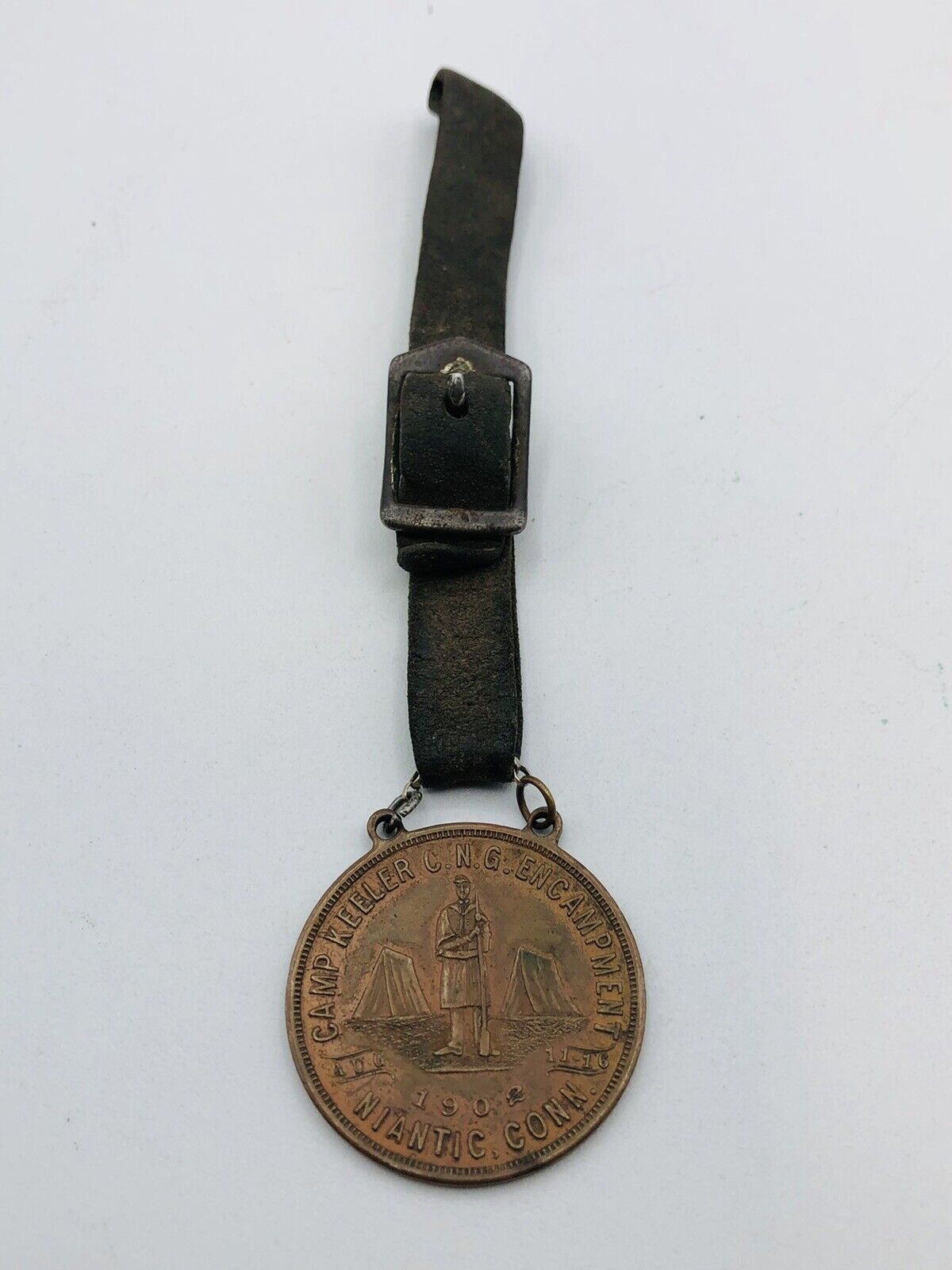-40%
Journal Of The Kilburn Guards- Littleton New Hampshire Begun In 1901
$ 76.55
- Description
- Size Guide
Description
Journal Of The Kilburn Guards- Littleton New Hampshire Begun In 1901This journal began in June of 1901, when a meeting of 14 men from Littleton, New Hampshire came together to form an independent military company in that town.
They voted to name the company, “The Littleton Guards.”
Their officers were chosen and recorded herein. On July 5, a committee was chosen to find a suitable place for use of an armory.
By August of that year, communications with the state authorities had been made and received in regards to being incorporated into the New Hampshire National Guard. The company, now having grown in number of 33, were assembled in the Police Court Room for examination by a state surgeon, on October 10, 1901, while the colonel and major of the 2nd NH Regiment were present, (Col. Edward Tetley, Major F.W. Russell), and Col. Tetley administered the prescribed oath of enlistment. The men signed the enlistment books and then became Company “F,” 2nd Regiment, 1st Brigade, New Hampshire National Guard.
On December 10th of that year, in meeting, a committee of three was formed to call upon their benefactor at times, Mr. Benjamin W. Kilburn, “relative to naming our civil organization “The Kilburn Guards.” On December 16, by unanimous vote, the name “Kilburn Guards” was adopted. Early the next year on January 6th, 1902, The clerk read the following resolution: “….unanimously voted to Hon. B.W. Kilburn, as an expression of our appreciation for the many, many splendid helps you have given to every good cause, and from which in many ways we have taken pleasure and profit, and especially for what you have done for our military organization in this town by gift of money and use of name. We say this from the bottom of our hearts we thank you for it; that we shall try to honor you for it; That at a regular meeting of the civil organization of Company F. NH NG on Monday evening, December 16, 1901, we unanimously selected your name as the one to distinguish us from all other organizations and upon our records and our banners shall be inscribed the words “The Kilburn Guards,” That it is our wish and hope that we may carry the name as successfully and as well for good and for honor as you have borne at these many years; Long may you live to see and to feel much of the gratitude which is ever for you from “The Kilburn Guards. H.S. Baldwin, President. C.P. Barnum, Secretary.”
At this point, a brief history should be covered of
Benjamin West Kilburn
, who was born in Littleton, NH on December 10, 1827. Kilburn enlisted on August 13, 1862 as a corporal in Company “D” 13th New Hampshire Infantry. He was discharged on February 19, 1863 having furnished a substitute. He received a promotion to Sergeant on January 6, 1863. By this time the only major engagement that the 13th New Hampshire had been part of was at Fredericksburg, and it is assumed (having been promoted to sergeant) had been in that battle.
After the war, Benjamin along with his brother Edward began producing stereoviews. Their business grew considerably, and by 1872 they built a large factory near the Littleton, NH railroad station. Not long after that they became the world’s most extensive manufacturer of stereoscopic views. After Edward’s retirement in the late 1870s, the company was renamed
B.W. Kilburn Co.
Benjamin Kilburn took photos in the thousands in the U.S., Europe, and the Near East, and in 1890 began hiring other photographers to take pictures for the company. Kilburn published his first Yellowstone Park views in 1886, and again in 1898, both very popular with the general public. Kilburn had exclusive rights to sell stereo views of the Columbian Exposition in Chicago, in 1893. In 1909, after the passing of Benjamin on January 15, the company soon after sold their massive inventory of negatives to the
Keystone View Company.
The company gave their first concert on February 11, 1902, drill and ball at the Opera House, with state officers present, among them their colonel, and other regimental staff officers. The company realized over 0.00; a successful social event as well as financially beneficial. In March, at a meeting on the 3rd, the company voted to allow their hall to be used for other use outside of military use, to benefit the town.
A tipped-in typed letter (copy) to the Hon. B.W. Kilburn on Nov. 29, 1902, in regards of receiving a banner from Kilburn, “further proof of his patriotic generosity….that Mr. Kilburn may be long spared to a community which has been enriched not less by the example of his life than the generous bounty of his hand. Signed by H.S. Baldwin, Capt. & Comd’g Co. F. 2nd Inf. NHNG.”
Company procured a pair of field glasses (.00), on Jan. 4, 1904. Purchasing of gymnastic apparatus for the armory, Jan. 4, 1904. Putting in telephones at the range was discussed at the April 4th, 1904 meeting. Mr. Kilburn donated .00 for the purchase of a sword and belt in November. On December 5th, 1904, a committee was chosen to investigate the cost of Basketball equipment, screening windows, and electric lights. Committee looking into basketball equipment empowered to purchase same on January 2, 1905. Lt. Nute made manager of the basketball team for the season, Jan. 30.; and jerseys ordered for on March 13. Buying Baseball equipment March 27, 1905. Repairs needed on rifle range, April 3.
A written invitation on letterhead for Marshall Sanders Post, No 48, G.A.R. received April 24, 1905, tipped-into journal; G.A.R. inviting Kilburn Guards to Church services on Sunday May 28, and again to join them on May 30, Memorial Day services in Littleton; signed for G.A.R. E.M. Underwood (originally from Fitchburg, Mass, a private in the 53rd Mass Infantry).
More votes to buy baseball equipment on May 1st, 1905. A motion made and carried that commissioned officers draw off resolutions in regard to Duty Medals on Nov. 6th. On Nov. 20th, 1905, a special meeting was called and tipped-in order regarding perfect attend medal for 100% proficiency. The need for a janitor brought up at the Dec. 3,1905 meeting.
The last entry was December 9, 1907 concerned hiring music for a military ball, that being the town orchestra. A proposition was made that each member of the company put in 50 cents toward the ball. Beside that listed above, there are many, many more entries for subjects like enlistments, votes for those wishing to enlist, promotions of men, more military balls, and dances, camp items needs, Memorial day ceremonies, etc. Not much happening militarily speaking at the turn of the 20th Century for the New Hampshire National Guard.
In the Adjutant General Report for 1900 to 1902, Company F originally in Farmington, New Hampshire, had fallen below the standards of efficiency. and there being on probability of improvement, recommendation by the Inspector General of the state to disband the company, that being done on September 16, 1901. “A company was organized in Littleton on October 11, 1901 to take the place of Company F, with enthusiastic and intelligent officers, together with the leading citizens of the town, gives promise of being on of the best companies in the state.”
The Inspector General’s Report for Oct. 1906 to Sept. 1908 state that Company “L” has armory accommodation above average, and aside from state funds, most money is raised by its company members. The town provides no money other that 0.00 rent for office in the armory building. The drill hall is attractive; Company relies on receipts from public and other entertainments; only 66 percent of members showed for state inspection, work performed by men at inspection show fair knowledge of their duties in general; books and papers were poorly kept; IG recommends the company the opportunity to reorganize. Assurances from the company commander promised his devotion to improvement of these areas of negative comment.
Poorly kept records might have something to do with the company journal not being used beyond 135 pages out of a total of 217. Company records were kept with the current clerk or commanding officer in most small companies. Poor attendance and lack of military training might have been caused by peace time conditions, with members devoting most of their time to private pursuits; no different from enrolled or private militia companies throughout New England in the past century.
Condition of the journal is well used, worn, cover very loose in places, bumped corners. Spine is torn in several places & along the front edge. Inside there might be spotting, staining, other notations inside.
A nice time capsule for a small company in the state guard, with some association to a well know benefactor, and famous photographer.
